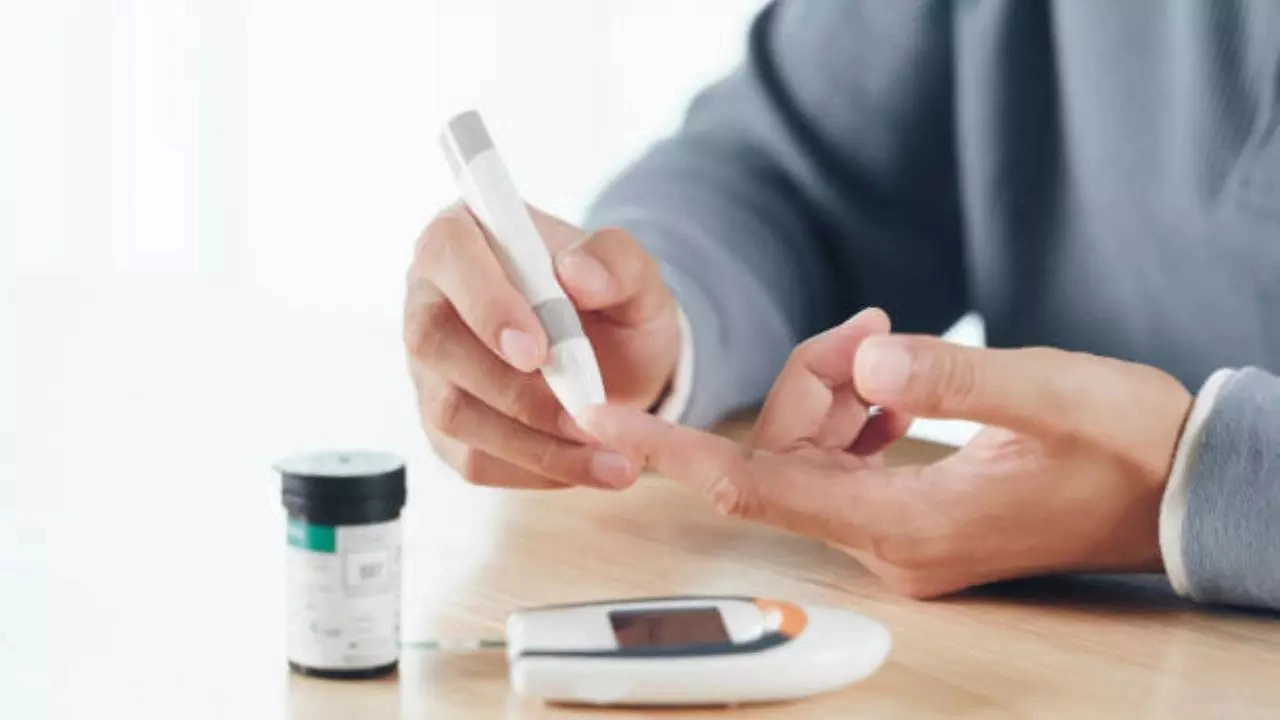Pallavi Mehra • 26 Jul 2024
How To Manage Diabetes? Expert Shares Tips To Follow On A Daily Basis

How To Manage Diabetes? Expert Shares Tips To Follow (Image Credits: iStock)
Diabetes is a chronic condition that affects millions of people worldwide. It requires continuous management to prevent complications and maintain a good quality of life. Effective diabetes management involves a combination of lifestyle changes, medication, and regular monitoring of blood glucose levels. Diabetes occurs when the body either cannot produce enough insulin or cannot effectively use the insulin it produces. There are three main types: Type 1, Type 2, and gestational diabetes. Living with diabetes requires constant attention and care, but with the right strategies, you can effectively manage your condition and lead a fulfilling life.
We got in touch with Dr Richa Chaturvedi, Senior Consultant, Endocrinology, Indraprastha Apollo Hospitals who shares tips to manage diabetes daily.
Tips To Manage Diabetes Daily
Track Glucose Levels
Dr Richa Chaturvedi shares that keeping track of your blood glucose levels is crucial for diabetes management. Use a glucose meter to check your levels as recommended by your health expert. This helps you understand how different foods, activities, and medications affect your blood sugar, allowing you to make informed decisions about your diet and lifestyle.
Nutritious Diet
Dr Richa Chaturvedi shares that a nutritious diet is fundamental in managing diabetes. Focus on whole grains, lean proteins, and healthy fats, along with plenty of fruits and vegetables. Limit processed foods and sugary drinks, and practice portion control to maintain a healthy weight. Consider working with a registered dietitian to create a meal plan tailored to your needs and preferences.
Regular Physical Activity
Dr Richa Chaturvedi explains regular physical activity helps control blood sugar levels and improves insulin sensitivity. Aim for at least 150 minutes of moderate-intensity exercise per week. This can include brisk walking, swimming, cycling, or strength training. Always consult your doctor before starting a new exercise regimen, and monitor your blood sugar before, during, and after workouts.
Take Medicines On Time
Dr Richa Chaturvedi shares that if your doctor has prescribed diabetes medications or insulin, take them consistently as directed. Never adjust your dosage without consulting your healthcare provider first. Manage stress through techniques such as deep breathing exercises, meditation, yoga, or engaging in hobbies you enjoy, as stress can affect blood sugar levels.
Proper Sleep
Dr Richa Chaturvedi explains adequate sleep is essential for overall health and can help regulate blood sugar levels. Aim for 7-9 hours of quality sleep each night. Establish a consistent sleep schedule and create a relaxing bedtime routine to improve your sleep quality.
Drink Plenty Of Water
Dr Richa Chaturvedi shares that staying hydrated is also important; drinking plenty of water helps flush out excess glucose through urine and prevents dehydration.
Foot Care
Dr Richa Chaturvedi explains diabetes can lead to nerve damage and poor circulation, making foot care crucial. Inspect your feet daily for cuts, blisters, or sores. Wear comfortable, well-fitting shoes and moisture-wicking socks. Also, schedule and attend regular appointments with your health expert, including your physician, endocrinologist, ophthalmologist, and dentist.
Join Support Group
Consider joining a diabetes support group or attending educational workshops to learn from others and share experiences. Always be prepared for emergencies by carrying diabetes supplies with you, including a glucose meter, test strips, and fast-acting carbohydrates for low blood sugar episodes.
Maintain Personal Hygiene
Maintain good personal hygiene to prevent infections, which can be more common and severe in people with diabetes. This includes regular hand washing, proper dental care, and prompt treatment of any cuts or wounds. If you choose to drink alcohol, do so in moderation and always with food, monitoring your glucose closely when drinking.
Travel Essentials
When travelling, plan ahead by packing extra supplies, carrying snacks, and researching medical facilities at your destination. If flying, keep diabetes supplies in your hand luggage.